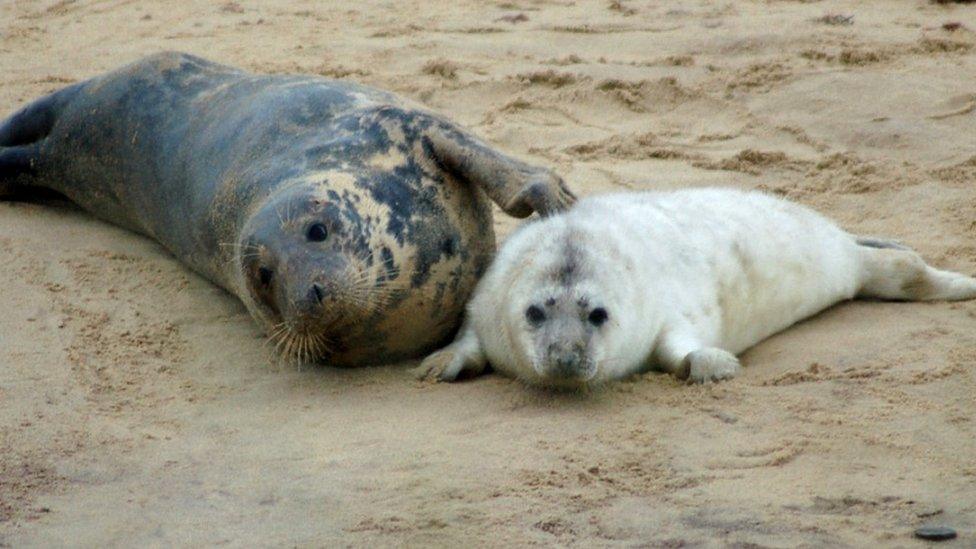Hunstanton Sea Life centre installs seal pup recovery pool
- Published
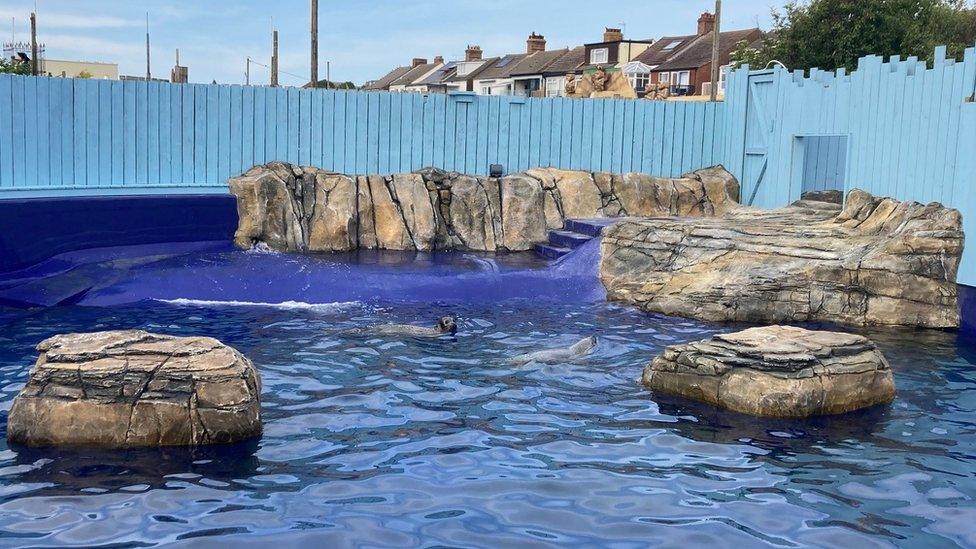
Pups are moved to the new specialised pup recovery pool at Sea Life Hunstanton after they have completed intensive care in the hospital
A new seal pup recovery pool has been installed at a rescue centre after a significant increase in the number of newborns needing help.
Sea Life Hunstanton's seal rescue centre said that in 2002 it rescued about 15 seals and by 2018 that had risen to more than 50, and it needed to improve its facilities.
Three seals have been rescued on the Norfolk coast in 10 days during June.
The centre said it thought the increase was due to seal population growth.
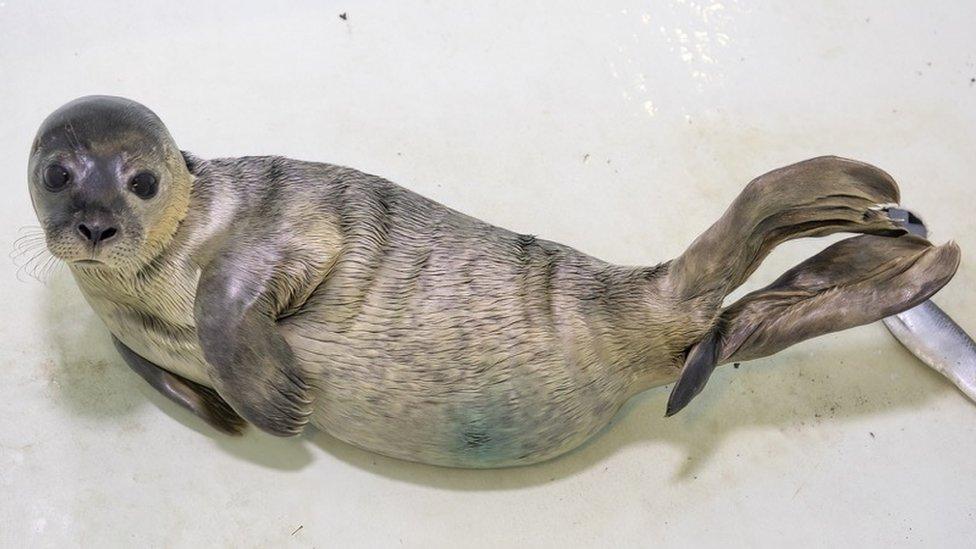
Seal pup Applewood has been cared for by the Hunstanton Sea Life team
Two species of seal, the grey seal and the common seal, have formed successful breeding colonies along the Norfolk coast and the centre said it had helped rescue and rehabilitate more than 750 since it opened its hospital in 1989. That figure included 50 in the past year.
General manager, Nigel Croasdale, said: "The increase in seal pup rescues is due to a year-on-year population growth.
"The limiting factors would be disease and food resource, and a growing seal population could well be a good indication of robust fish stocks."
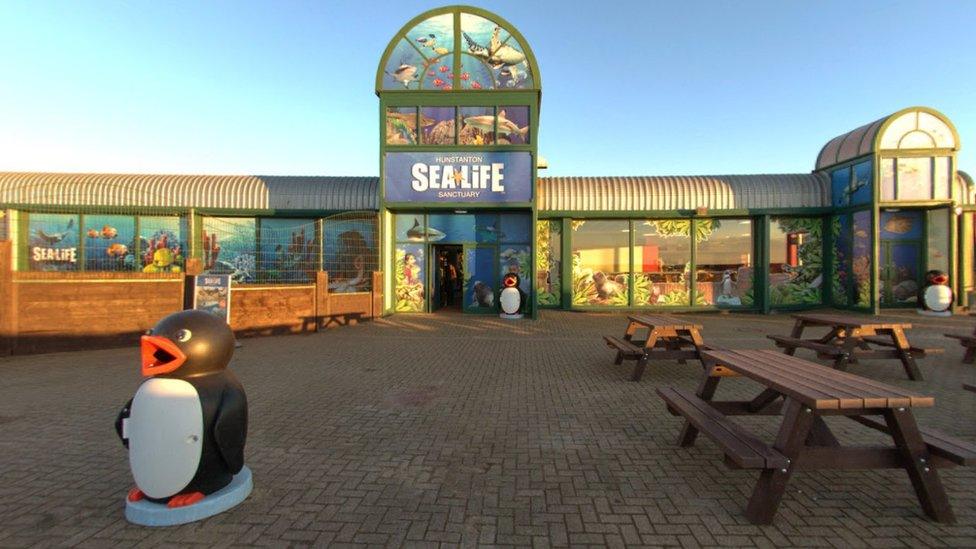
Hunstanton Sea Life Centre has a dedicated seal rescue centre and hospital
Most rescued seals were young and vulnerable and often separated from their mothers when they were still reliant on their milk, the centre said.
Mr Croasdale added: "At this time of the year the common seal is pupping and it is important to keep a good distance from any seals spotted on the beach, as it could be a mother nursing a newborn pup, or a pup that is awaiting its mother's return from a quick swim in the sea.
"The adult seal can be easily scared away from her pup, resulting in abandonment."
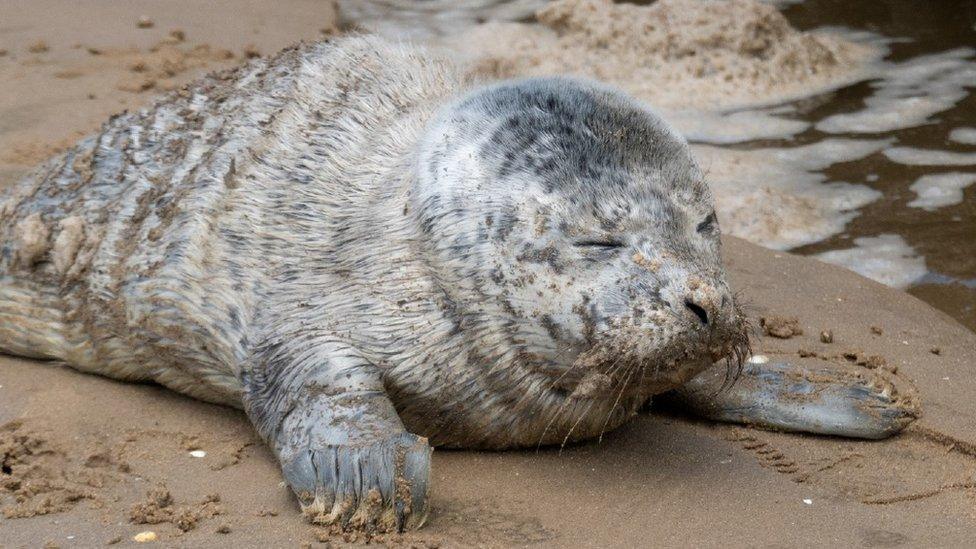
Most rescued seals are young and vulnerable and have often been separated from their mother
Rescued pups are now moved to the new specialised pup recovery pool after they have completed intensive care in the hospital.
They can then regain muscle strength and body fat, and learn to swim, dive and compete for food.
Mr Croasdale said it could now "help even more seal pups and rehabilitate them" and then track their release into the sea by tagging them.
"Those we have treated in the past have even been spotted on French and German coasts, which demonstrates just how important our hospital is," he said.

Find BBC News: East of England on Facebook, external, Instagram, external and Twitter, external. If you have a story suggestion email eastofenglandnews@bbc.co.uk, external
Related topics
- Published25 January 2022
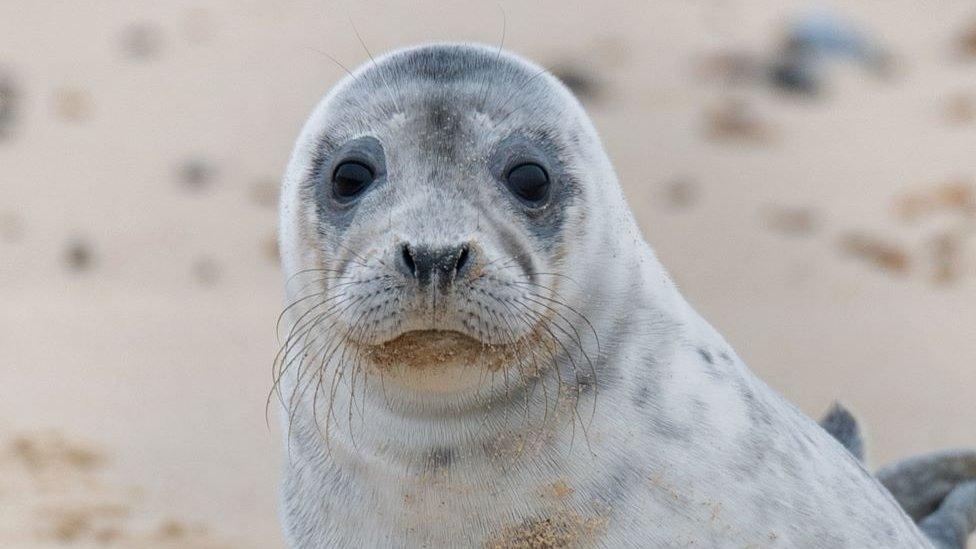
- Published29 October 2021
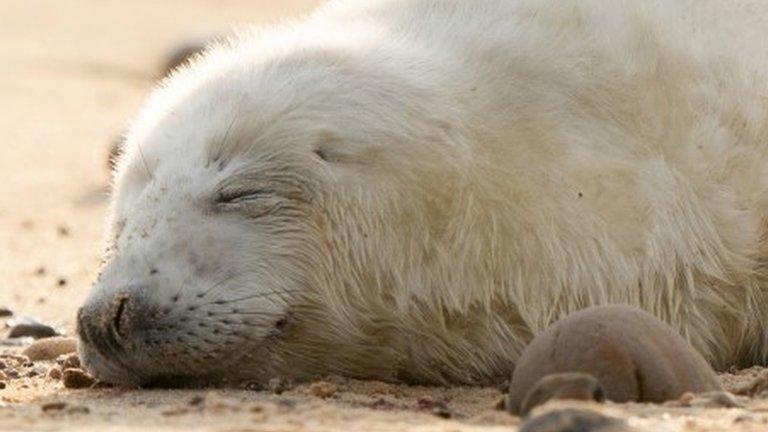
- Published30 January 2022
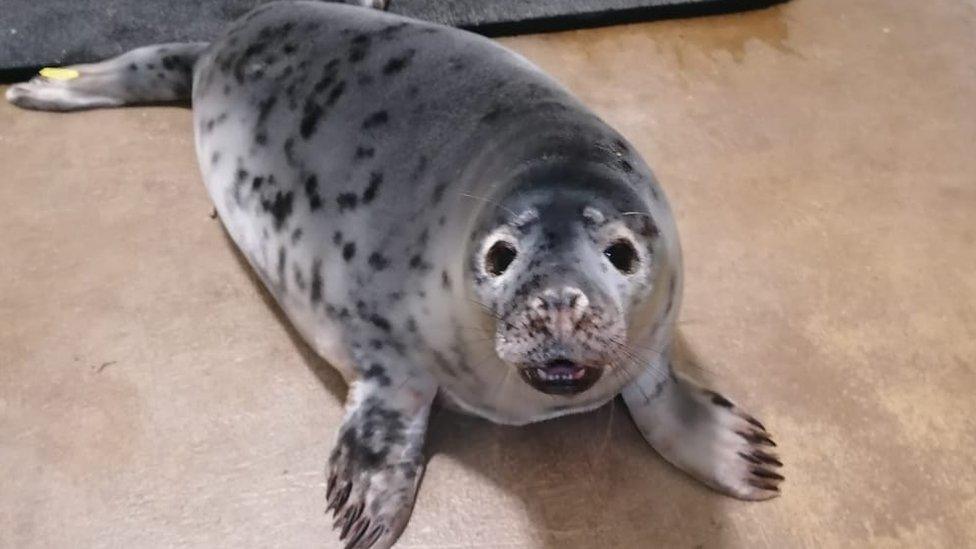
- Published9 January 2016
